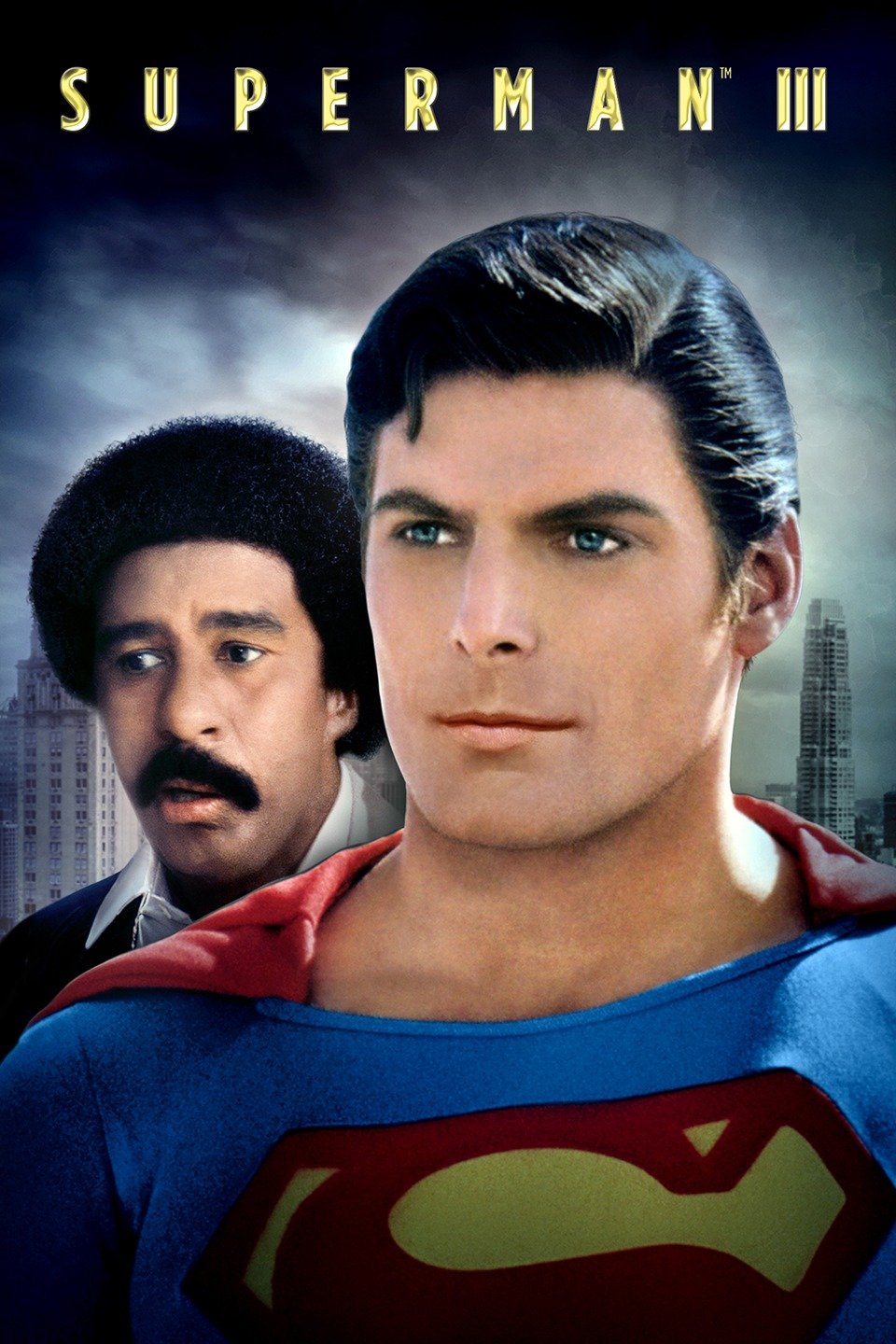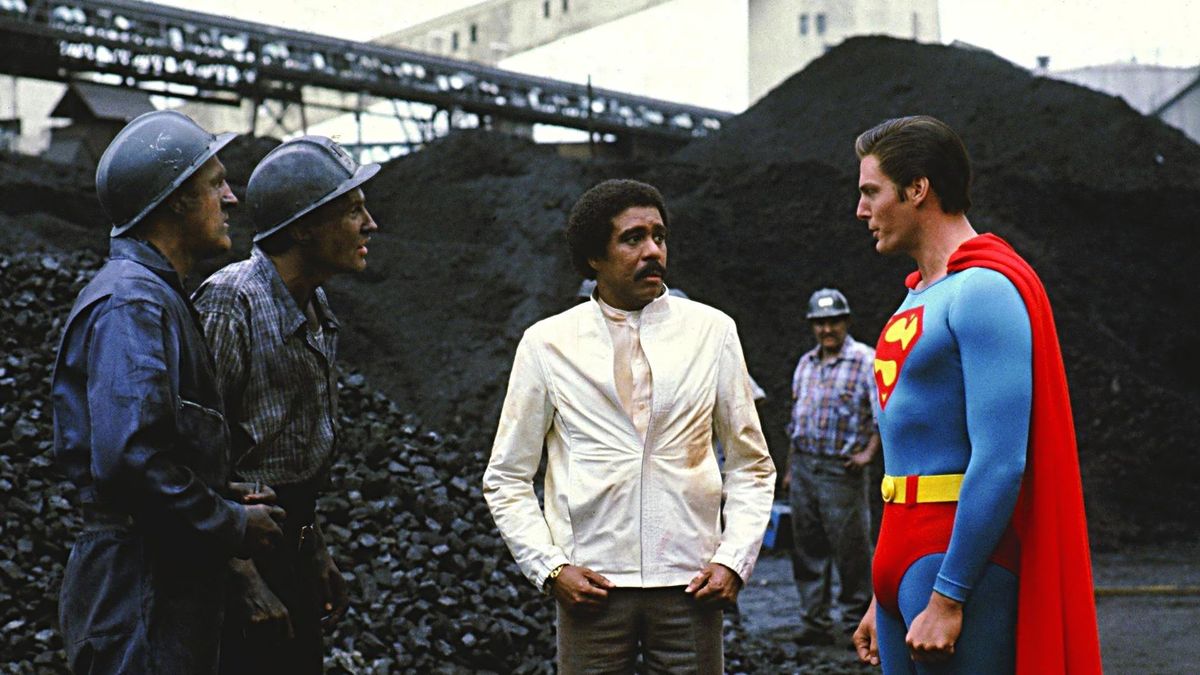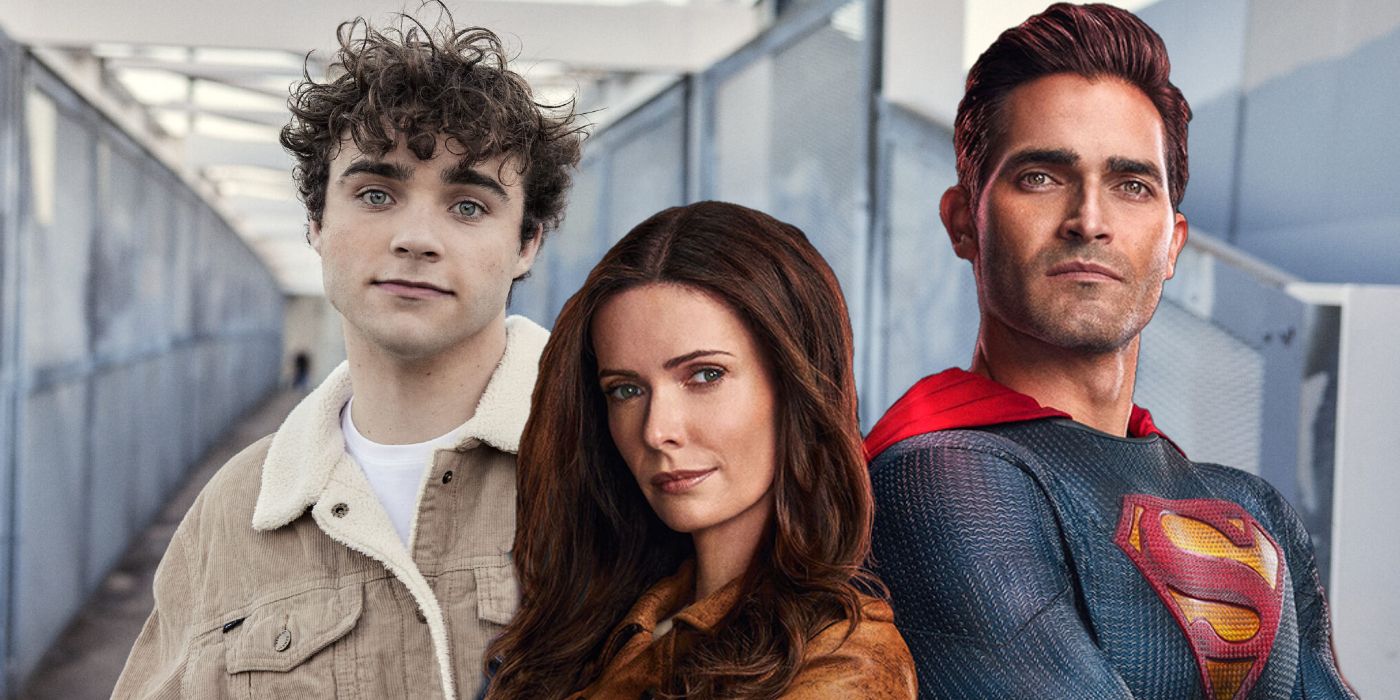Ever wondered if a superhero's might could be tainted, if even the Man of Steel could be turned? Superman III (1983) dared to explore this very question, offering a complex narrative that tested the limits of good and evil within a familiar hero.
Released in 1983, Superman III, directed by Richard Lester from a screenplay by David Newman and Leslie Newman, offered a different take on the Superman saga. It wasn't just another story of good versus evil; it delved into the ethical complexities of power and the potential for corruption, even within the purest of hearts. The film followed the success of Superman II and, like its predecessors, drew inspiration from the iconic DC Comics character. This time, the narrative presented a more comedic approach, leaning into the lighter aspects of the Silver Age comic stories, a departure that would define its tone.
The film brought together a stellar cast, with Christopher Reeve reprising his role as the iconic Clark Kent/Superman. Joining him were a host of talented actors, including Richard Pryor, Jackie Cooper, Marc McClure, and Margot Kidder. This ensemble cast, under Lester's direction, embarked on a cinematic journey that explored themes of ambition, corruption, and the enduring battle between right and wrong. But what made this movie truly stand out? It was the innovative combination of action, humor, and a moral examination of the hero that resonated with the audiences.
| Attribute | Details |
|---|---|
| Title | Superman III |
| Release Year | 1983 |
| Director | Richard Lester |
| Screenplay | David Newman and Leslie Newman |
| Based on | DC Comics character Superman |
| Main Cast | Christopher Reeve, Richard Pryor, Jackie Cooper, Marc McClure, Annette O'Toole, Annie Ross, Pamela Stephenson, Robert Vaughn |
| Genre | Action & Adventure, Comedy, Science Fiction |
| Runtime | 2 hours 5 minutes |
| Producers | Alexander Salkind, Ilya Salkind |
| Synopsis | Superman faces off against a computer genius manipulated by a corrupt entrepreneur, with his own moral compass tested when exposed to "Ersatz Kryptonite." |
| Reference | IMDb |
One of the most intriguing aspects of Superman III was the casting of Richard Pryor. Known for his groundbreaking stand-up comedy and successful film roles, Pryor was brought in to bring a new dimension to the superhero's world. The Salkinds were eager to harness Pryor's success. This led to his casting in a prominent role, using his existing popularity to draw in audiences. This decision, while potentially promising, proved to be a double-edged sword. While Pryor's presence certainly added a unique flavor to the film, the narrative did not fully exploit his comedic genius.
The film presents a compelling narrative of an entrepreneur named Ross Webster, who, driven by his own evil intentions, teams up with a computer genius. When Superman interferes with their plans, Webster sets out to destroy him. This central conflict serves as the backbone of the plot, driving the action and suspense throughout the film. The plot introduces "Ersatz Kryptonite" with tobacco tar, which changes Superman to good and bad, adding another level of complexity to the character's actions. This innovative plot device challenges Superman's moral fiber, a theme that resonated throughout the narrative.
As Clark Kent, Christopher Reeve once again embodied the iconic character with his signature charm and heroism. His dual role as Superman and the mild-mannered reporter was executed with precision, showcasing his incredible acting skills. The film explores the duality of his persona, demonstrating the struggles of a superhero trying to navigate a world filled with both good and evil.
The film introduces several key characters who play vital roles in the story. Gus Gorman, the computer genius, is a character who unexpectedly finds himself in a world of corporate espionage. He becomes integral to Ross Webster's schemes, and his involvement drives a significant portion of the plot. The interactions between these characters add layers of intrigue and comedy to the narrative. Additionally, the film's focus on action sequences and stunts, coupled with the superhero's iconic abilities, keeps audiences engaged.
The film also features Annette O'Toole, Annie Ross, Pamela Stephenson, and Robert Vaughn, each contributing their talents to create a rich and engaging cinematic experience. The inclusion of these diverse characters broadens the scope of the narrative, giving the audience a more well-rounded look at the world of Superman.
Despite its ambitions, Superman III had its challenges. Critics such as William Thomas from Empire Magazine noted that while the action was good, the film did not resonate with audiences in the same way as its predecessors. Linda Deutsch of the Associated Press echoed these sentiments, pointing to the film's lack of depth. The comedic direction, while innovative, did not always land perfectly with fans of the series.
This installment of the series was also the last film produced by Alexander Salkind and Ilya Salkind, marking the end of an era for the Superman franchise. Their contributions had a lasting impact, and their vision shaped the series in ways that continue to be felt today.
The film's reception was a mixed bag. While it offered thrilling action sequences and the undeniable appeal of Christopher Reeve in the lead role, some critics and fans felt it strayed too far from the core essence of the Superman story. The shift towards comedy and the portrayal of the iconic hero's moral dilemma resulted in a polarizing viewing experience. Despite these criticisms, the movie has earned its place in the legacy of superhero films. It demonstrated the adaptability of the Superman narrative and its enduring appeal, even when taking risks.
Looking beyond the specifics of Superman III, the film stands as a testament to the evolving nature of the superhero genre. Its willingness to take risks, experiment with tone, and explore the vulnerabilities of its central character set it apart. This approach has contributed to the film's enduring legacy.
The "Superman" film series is a prominent part of the entertainment world. From the upcoming reboot to the many installments that came before, the stories of Superman have captured the imaginations of audiences around the world. These stories remind us of the power of heroism and the constant battle between right and wrong. The lasting appeal of Superman is a testament to the enduring power of hope and justice.
In the broader landscape of superhero films, Superman III stands as a reminder of the possibilities and the challenges of adapting comic book stories for the screen. This includes its willingness to blend different genres and offer a unique take on the classic hero. With its blend of action, comedy, and a touch of moral complexity, Superman III remains a noteworthy addition to the Superman canon.
The ongoing success of the "Superman" franchise is evident. The upcoming American superhero film, simply titled "Superman," is a reboot of the Superman film series. This movie, produced by DC Studios, Troll Court Entertainment, and The Safran Company, and distributed by Warner Bros. Pictures, is highly anticipated. The film, written and directed by James Gunn, stars David Corenswet as Clark Kent, and promises a fresh take on the iconic character, and a reboot of the Superman film series, solidifying the enduring appeal of the Superman story.


